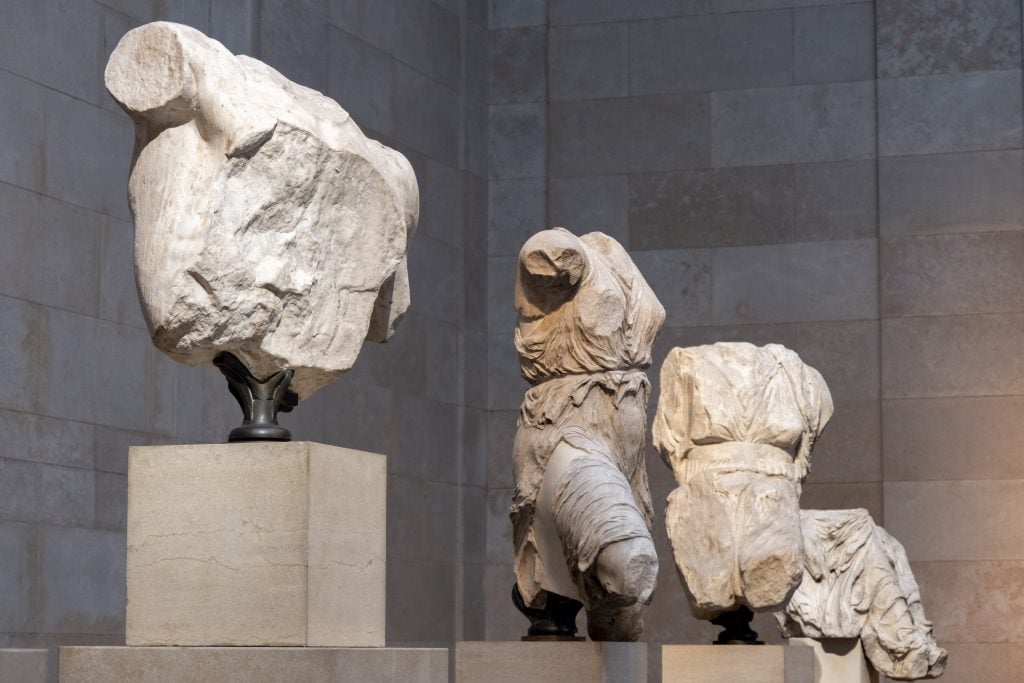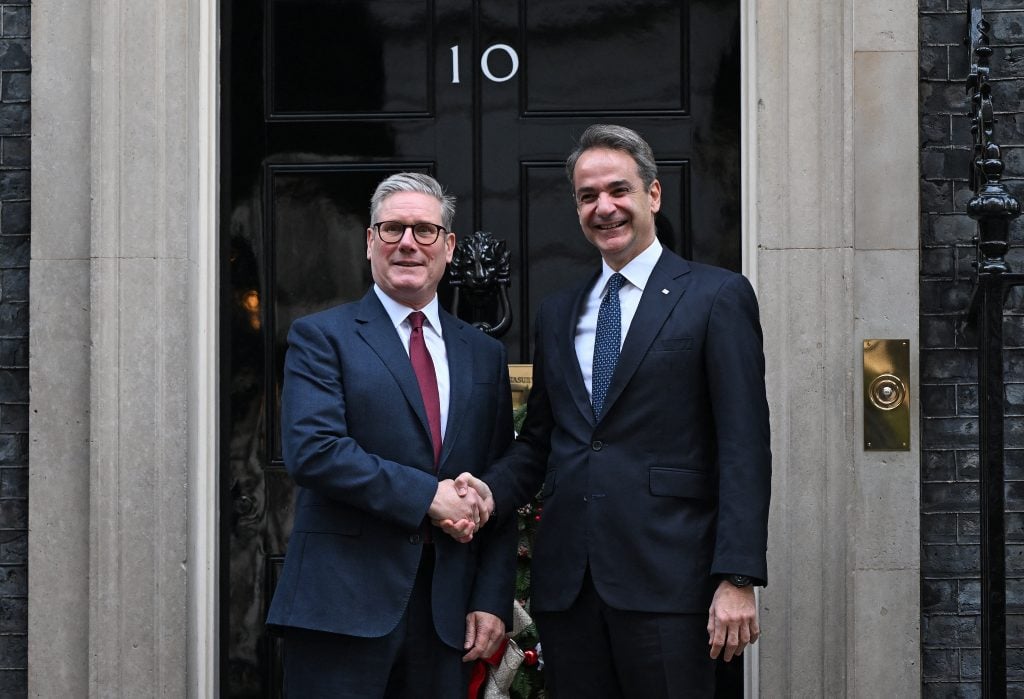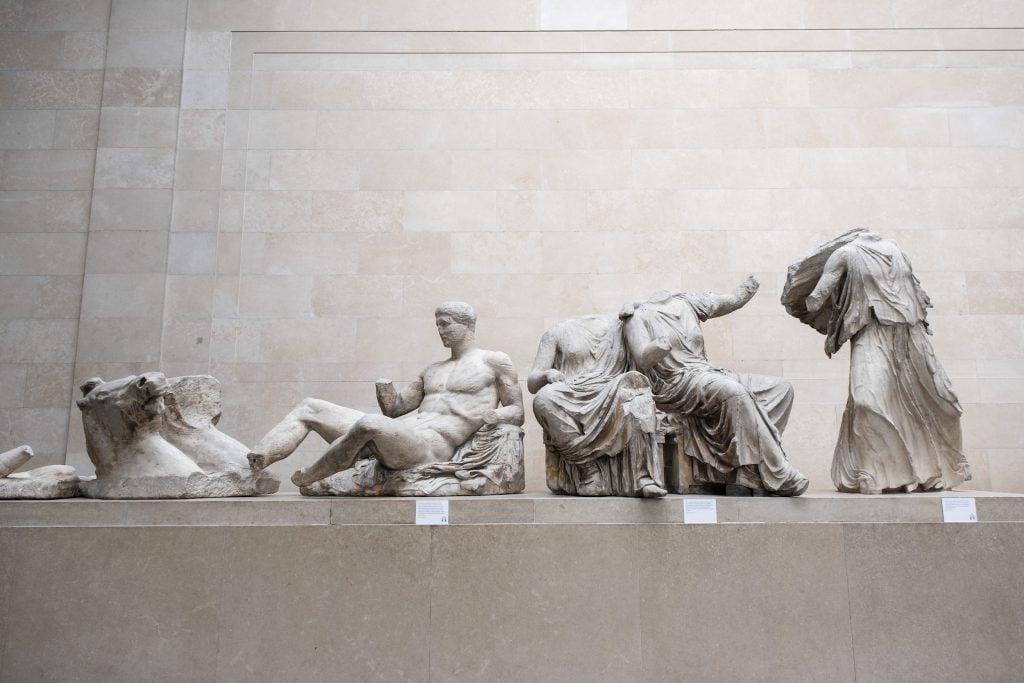Law & Politics
Is the U.K. Nearing a Historic Deal to Return the Parthenon Marbles?
The British Museum confirmed "ongoing and constructive" discussions are underway as the British and Greek prime ministers meet at Downing Street.

The British Museum confirmed "ongoing and constructive" discussions are underway as the British and Greek prime ministers meet at Downing Street.

Jo Lawson-Tancred

The U.K. could be edging closer to a deal with Greece that would allow for the return of the Parthenon Marbles. The news comes as the British prime minister Keir Starmer meets with Greek prime minister Kyriakos Mitsotakis today.
Talks concerning the Parthenon marbles are advancing as the Greek foreign ministry and George Osborne, the chair of the British Museum, move towards “an agreement in principle” to reunify the antiquities in Athens, according to a report in the Guardian.
A spokesperson for the museum confirmed via email that “ongoing and constructive” discussions are underway with Greece.
Although Starmer said the subject will not be on the agenda during his meeting with Mitsotakis, he has reiterated that his government would not stand in the way of any deal Greece strikes with the British Museum.
“Our position on the Elgin [Parthenon] marbles has not changed,” a spokesperson for Starmer told the Guardian. “It remains a matter for the British Museum and the government has no plans to change the law that would permit a permanent move of the Parthenon sculptures.”

Britain’s Prime Minister Keir Starmer (left) with Greece’s Prime Minister Kyriakos Mitsotakis outside of 10 Downing Street in London, 2024. Photo: Justin Tallis/AFP via Getty Images.
Last year, former U.K. leader Rishi Sunak of the right-wing Conservative party, refused to meet Mitsotakis over comments he had made about the Parthenon marbles in the press. Sunak had previously vowed to protect the marbles, calling them a “huge asset” to the U.K. Meanwhile, Starmer, of the center-left Labour Party stepped in to meet the Greek leader instead of Sunak, assuring Mitsotakis that a Labour government would not block the marbles’ return. During the last general election in July, Labour enjoyed a sweeping victory against the Conservatives.
Mitsotakis has since spoken of this change of leadership as a major advancement in his bid to repatriate the marbles. “I think with the new Labour government we will have a better opportunity to actually conclude the agreement because it will not oppose an agreement that is reached between the Greek government and the British Museum,” he said in September. “There is a critical mass of political will.”
Though the details have not been made public, some have suggested that Greece and the British Museum may finally be nearing an agreement following new negotiations started in 2021. One unnamed source told the Guardian that these discussions were “well advanced.” The newspaper also quoted a source who claimed “the mood music has completely changed.”
Still, Osbourne said a deal is still a “long way off.”

Parthenon sculptures of Ancient Greece, fragments which are collectively known as the Elgin Marbles at the British Museum. Photo by Mike Kemp/via Getty Images.
The Parthenon marbles were removed from the Acropolis of Athens in the early 19th century by Lord Elgin, who sold them to the British Museum in 1816. Greece has been formally calling for their return since the 1980s but their return is currently blocked by a 1963 U.K. law forbidding the British Museum to deaccession objects in its collection except under limited conditions. (The Charities Act 2022 may, however, provide a loophole allowing museums to dispose of objects where there is a “moral obligation” to do so.)
Attempts to reach an alternative deal between the two countries have been stalled by Greece’s refusal to accept the marbles’ return as a “loan.” Such an arrangement would implicitly recognize the U.K.’s claim to ownership of the marbles, which Greece does not.
At the start of this year, Greece proposed an arrangement that would see the marbles returned to Athens in exchange for a rolling program of prized loans from Greece to the British Museum. Over the summer, the institution’s new director Nicholas Cullinan said he hoped to create a “lending library” solution but did not provide much detail as to how this would work in practice.
Greece’s culture minister Lina Mendoni today urged Greeks to “be a little patient,” according to Ta Nea. “The entire government is working on this, under the guidance of the prime minister,” she promised.
This story was updated on December 5 at 4:56 a.m. ET.